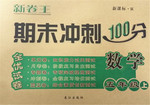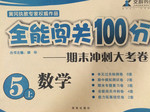题目内容
Once there was a poor man who worked for a landlord(地主). The landlord made the man (1) all day long, but (2) him very little money and didn't give him enough food to eat. One day when the man (3) breakfast, the landlord came and said to him, “It's too much trouble to go to work and come back for lunch. So I want you to have breakfast and lunch and supper now, before you (4) to the fields.”“How can I eat three meals at the same time?”the man thought. But he said,“All right.”He (5) his breakfast and went out. Two hours later the landlord went out for a walk. Now what did he see? He saw that the man was (6) under a tree and (7) . The landlord was very angry.“Why aren't you working in the fields?”he asked. The man said with a smile,“ (8) my supper and you know very well that after supper it's time to play.”
1.
[ ]
2.
[ ]
3.
[ ]
4.
[ ]
5.
[ ]
6.
[ ]
7.
[ ]
8.
[ ]
解析:
|
解析:对语法的综合运用是完形填空考查的一个重点内容,包括对各种时态、语态、比较级和最高级的用法、非谓语动词的用法以及各种从句的用法等。答题时首先要通读全文,了解文章大意,弄清楚文章的故事梗概,明确文章的主体时态,并根据文章的上下文,充分考虑时态的一致性。1.make somebody do something使某人做某事。动词do为不带to的动词不定式,故应选work. 2.根据时态的一致性原则,前句谓语动词是一般过去时made,则后面的并列句谓语动词应选一般过去时。pay的过去式为paid,故选C. 5.finish one's supper吃完晚饭。 7.连续用了两个过去进行时,意思是“正坐在树下抽烟”。 8.意思是“我已经吃过晚饭了”。 方法提炼:要想在完形填空题上得高分,考生首先要练好扎实的基本功。因为综合能力的提高依赖于坚实的基础、过硬的基本功。只有在平时不断地积累、总结、归纳学到的东西,并注意温故知新,才能打下坚实的基础。 |

 课程达标测试卷闯关100分系列答案
课程达标测试卷闯关100分系列答案 新卷王期末冲刺100分系列答案
新卷王期末冲刺100分系列答案 全能闯关100分系列答案
全能闯关100分系列答案完形填空
A young man once went into town and bought himself 1 trousers. When he 2 home, he went upstairs to his bedroom and put them 3 He found that they were about two inches too 4 .
He went downstairs and there his mother and two sisters were 5 up the tea things in the kitchen. “These new trousers 6 too long.” he said. “They need to be shortened by about two inches. Whould one of you mind 7 this 8 me, please?”His mother and sisters were busy and 9 of them said 10 .
But as soon as his mother was free she went 11 upstairs to her son's bedroom and shortened the trousers by two inches. She came downstairs 12 saying anything to her daughters.
Later on, after supper, the elder sister remembered her brother's trousers. She was a kindhearted girl, 13 she went upstairs and shortened the trousers by two inches.
The younger sister went to the cinema, but when she came in, she, too, remembered 14 her brother 15 . So she ran upstairs 16 her scissors(剪刀)and took two inches 17 legs of the new trousers.You can imagine the look 18 the young man's face 19 he put the trousers on the 20 morning.
(1) A. a |
B. a copy of |
C. a pair of |
D. a piece of |
[ ] |
(2) A. arrived at |
B. got to |
C. got |
D. reached to |
[ ] |
(3) A. up |
B. on |
C. in |
D. off |
[ ] |
(4) A. big |
B. small |
C. long |
D. short |
[ ] |
(5) A. eating |
B. drinking |
C. washing |
D. keeping |
[ ] |
(6) A. be |
B. am |
C. is |
D. are |
[ ] |
(7) A. doing |
B. to do |
C. do |
D. did |
[ ] |
(8) A. on |
B. for |
C. by |
D. with |
[ ] |
(9) A. no |
B. nobody |
C. none |
D. neither |
[ ] |
(10) A. something |
B. nothing |
C. none |
D. anything |
[ ] |
(11) A. quietly |
B. noisily |
C. slowly |
D. openly |
[ ] |
(12) A. with |
B. but |
C. no |
D. without |
[ ] |
(13) A. so |
B. and |
C. then |
D. than |
[ ] |
(14) A. that |
B. which |
C. what |
D. when |
[ ] |
(15) A. said |
B. had said |
C. has said |
D. says |
[ ] |
(16) A. with |
B. without |
C. take |
D. bring |
[ ] |
(17) A. of |
B. away |
C. off |
D. in |
[ ] |
(18) A. in |
B. on |
C. over |
D. from |
[ ] |
(19) A. when |
B. while |
C. as |
D. whenever |
[ ] |
(20) A. tomorrow |
B. next |
C. second |
D. last |
[ ] |